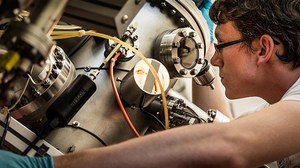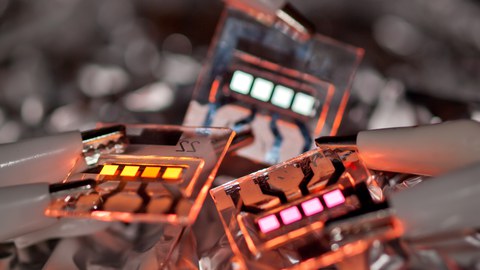Studying at the Institute of Applied Physics
The applied solid-state physics and photonics specialization offers exciting insights into current research questions in solid-state physics, semiconductor physics, optoelectronics, scanning microscopy, optics and surface physics, among others. In addition to the development of new measurement methods on the nanometer and femtosecond scale, the focus is on the investigation of modern materials, e.g. for organic electronics. The guiding principle at the IAP of conducting research from the basics to applications is carried over to the teaching content of the specialization area and enables a theory-based, interdisciplinary and emphatically application-driven study of innovative research and technology fields. Due to the close cooperation with industrial partners, e.g. the successful spin-offs Novaled and Heliatek, the IAP is very well networked in the regional electronics technology cluster. In this way, you can use a successful degree at the TU Dresden as an excellent career springboard.
 © Amac Garbe
© Amac Garbe
Studying at the Institute of Applied Physics
You can take the applied physics and photonics specialization in a physics bachelor's or master's degree in physics. In order to be able to train specialists in the field of organic electronics in a targeted manner, the international master’s course Organic & Molecular Electronics was established at the TU Dresden in 2012. This English-language course, unique in the world, combines future-oriented teaching and research from various disciplines (such as physics, chemistry, materials science and electrical engineering) at the highest international level.
The lab course to specialize in applied solid state physics and photonics is a compulsory elective module in the Physics (Master).
Our research ranges from pure solid-state basic research, such as the investigation of transport processes in periodic quantum structures, to application-oriented investigations in the field of electronics and optoelectronics. Our work has led to successful company foundings. Perhaps you too can follow your work at TU Dresden with a career at CreaPhys, Heliatek or Novaled!





